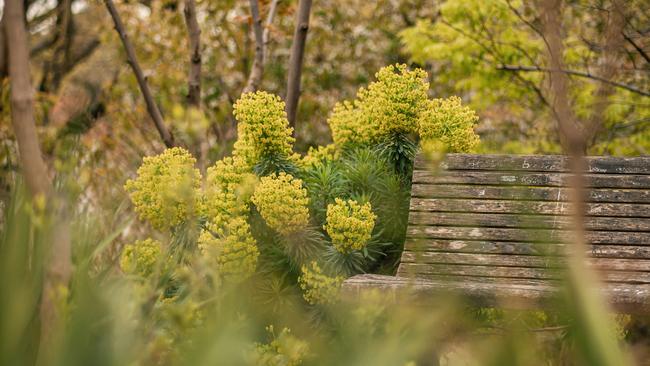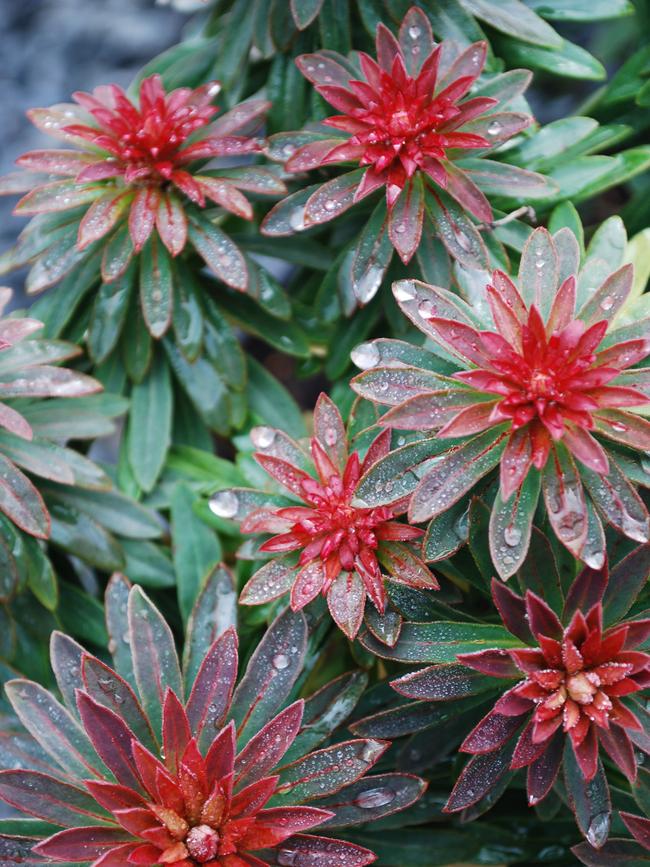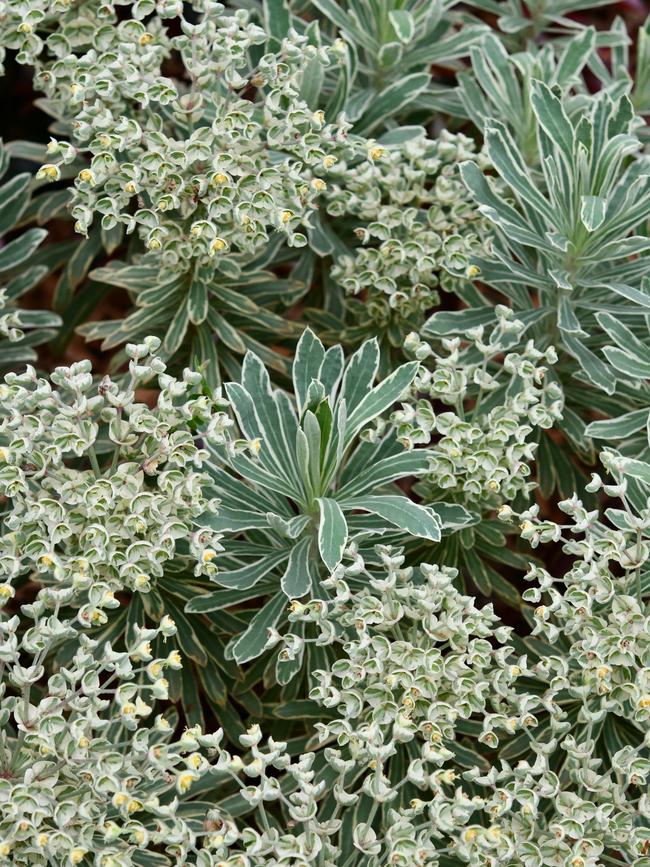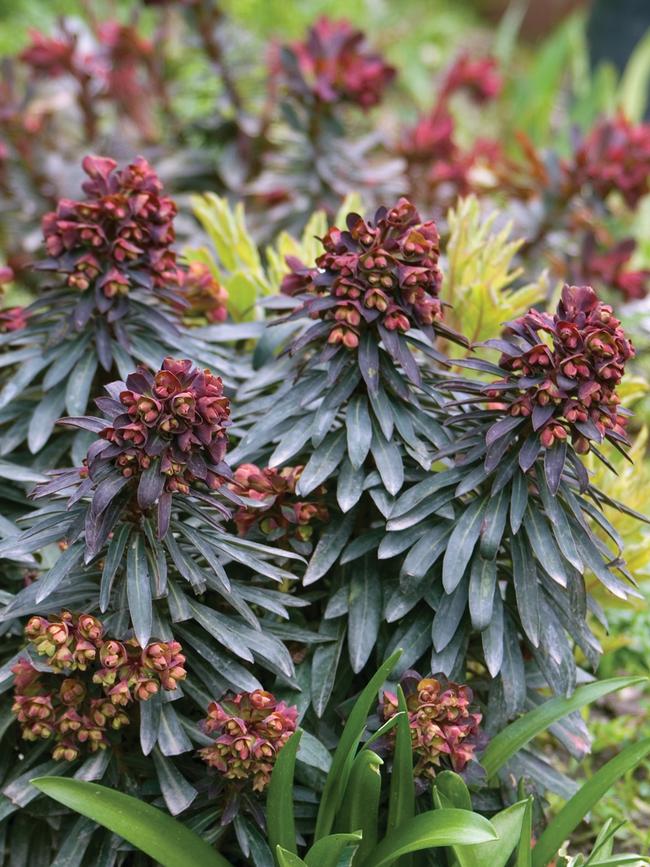Good as gold: why spurges are perfect for coastal gardens
These plants are stalwarts of Mediterranean, coastal and waterwise gardens, best in full sun, resilient to pests and diseases, and are low maintenance.

The euphorbias generally known as spurges, such as Euphorbia characias and its cultivars, are renowned for their ability to withstand hot and dry conditions as well as frost, making them some of the toughest of perennials. They’re also great garden performers, offering coloured foliage and spires of lime gold flowers from late winter, often until the peak of summer. These showy blooms are really bracts or modified leaves, with the tiny true flowers in the centres. An old favourite for cottage gardeners is E. characias subspecies wulfenii, with bluish-green foliage and eye-catching domes of acid-green flowers. It grows a metre high and wide and readily self-seeds but newer varieties are more compact, with different foliage colours that include cream, yellow, purple and red shades. Spurges are stalwarts of Mediterranean, coastal and waterwise gardens and work well in containers and rockeries. They’re best in full sun in free-draining soils, are resilient to pests and diseases, and are low maintenance. Beware though, their milky sap is poisonous and can irritate skin and eyes.
Euphorbias - What’s New?
Among the best new varieties of euphorbias include the four below.


They all have compact growth, provide year-round interest and tolerate extremes of heat and cold.


Q&A
To protect our plants against extremes of heat and cold, we’ve used a spray-on synthetic polymer (Droughtshield). We’re trialling an alternative new product with kaolin clay. It seems to reduce wilting and sunburn on our precious quince tree but does it exclude sunlight and thus affect ripening? Will it protect against frost?
Janet Hughes, Canberra
US research on an agricultural kaolin clay product showed it not only protected fruit crops from sunburn and heat stress, it significantly increased yields and sugar content. The light clay coating reflects damaging UV and infrared rays but doesn’t inhibit photosynthesis – treated trees photosynthesised up to 30 per cent faster than untreated ones. It also protects plants from frost because of its water-repelling qualities. Kaolin is also successful at controlling many pests and diseases, organically. Re-apply regularly.
Please suggest a flowering pot plant that will happily live in an aged-care room.
Father Roy Todd, by email
Light levels greatly affect flowering. Close to a window is ideal, as light levels drop significantly even a small distance away. Peace lilies (Spathiphyllum) and flamingo flower (Anthurium) do well indoors but need bright, indirect light to keep flowering. Otherwise choose a plant that you buy in flower or bud that will flower for many months, then be replaced for birthdays and/or Christmas. Long-flowering choices include moth orchids (Phalaenopsis), poinsettias (available at Christmas) and cyclamens with their patterned leaves and bright flowers from autumn to spring.
Possums decimated my lemon tree last winter. It’s now recovered and in full bloom but there are no signs of new lemons. Previously they were plentiful.
Judith Ben-Meir, by email
If you have flowers, they will soon turn into fruit. Just make sure you keep the tree well watered during this critical period when the fruit set.
Send your questions to helenyoungtwig@gmail.com The best question for February will win two copies of takanya/Tarkine: One of the Last Wild Places on Earth ($75 each) from Australian Geographic, which showcases the stunning landscapes and heritage of Tasmania’s Tarkine wilderness.





To join the conversation, please log in. Don't have an account? Register
Join the conversation, you are commenting as Logout